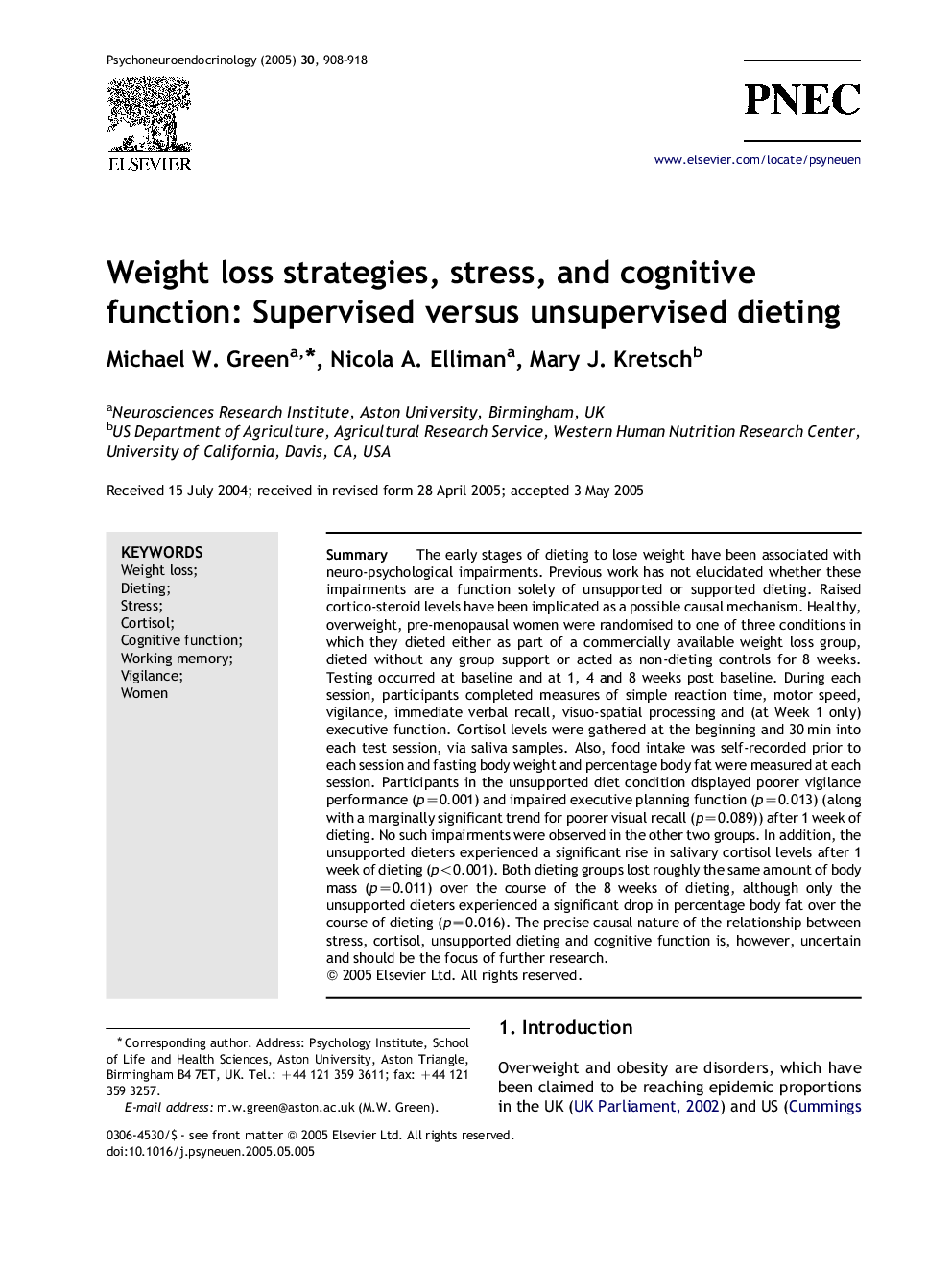| Article ID | Journal | Published Year | Pages | File Type |
|---|---|---|---|---|
| 10307022 | Psychoneuroendocrinology | 2005 | 11 Pages |
Abstract
The early stages of dieting to lose weight have been associated with neuro-psychological impairments. Previous work has not elucidated whether these impairments are a function solely of unsupported or supported dieting. Raised cortico-steroid levels have been implicated as a possible causal mechanism. Healthy, overweight, pre-menopausal women were randomised to one of three conditions in which they dieted either as part of a commercially available weight loss group, dieted without any group support or acted as non-dieting controls for 8 weeks. Testing occurred at baseline and at 1, 4 and 8 weeks post baseline. During each session, participants completed measures of simple reaction time, motor speed, vigilance, immediate verbal recall, visuo-spatial processing and (at Week 1 only) executive function. Cortisol levels were gathered at the beginning and 30Â min into each test session, via saliva samples. Also, food intake was self-recorded prior to each session and fasting body weight and percentage body fat were measured at each session. Participants in the unsupported diet condition displayed poorer vigilance performance (p=0.001) and impaired executive planning function (p=0.013) (along with a marginally significant trend for poorer visual recall (p=0.089)) after 1 week of dieting. No such impairments were observed in the other two groups. In addition, the unsupported dieters experienced a significant rise in salivary cortisol levels after 1 week of dieting (p<0.001). Both dieting groups lost roughly the same amount of body mass (p=0.011) over the course of the 8 weeks of dieting, although only the unsupported dieters experienced a significant drop in percentage body fat over the course of dieting (p=0.016). The precise causal nature of the relationship between stress, cortisol, unsupported dieting and cognitive function is, however, uncertain and should be the focus of further research.
Related Topics
Life Sciences
Biochemistry, Genetics and Molecular Biology
Endocrinology
Authors
Michael W. Green, Nicola A. Elliman, Mary J. Kretsch,
